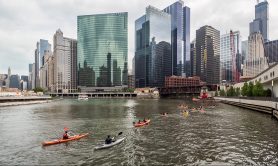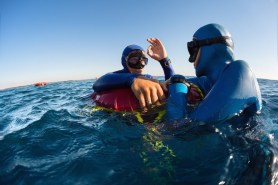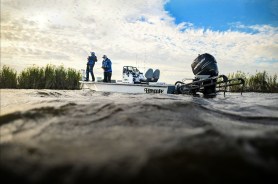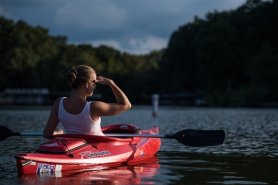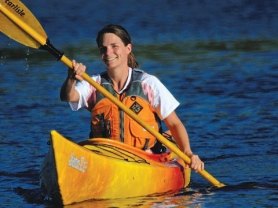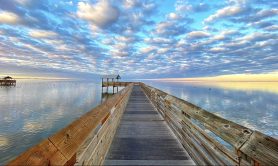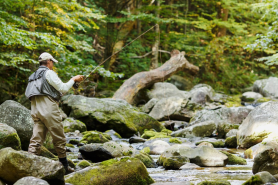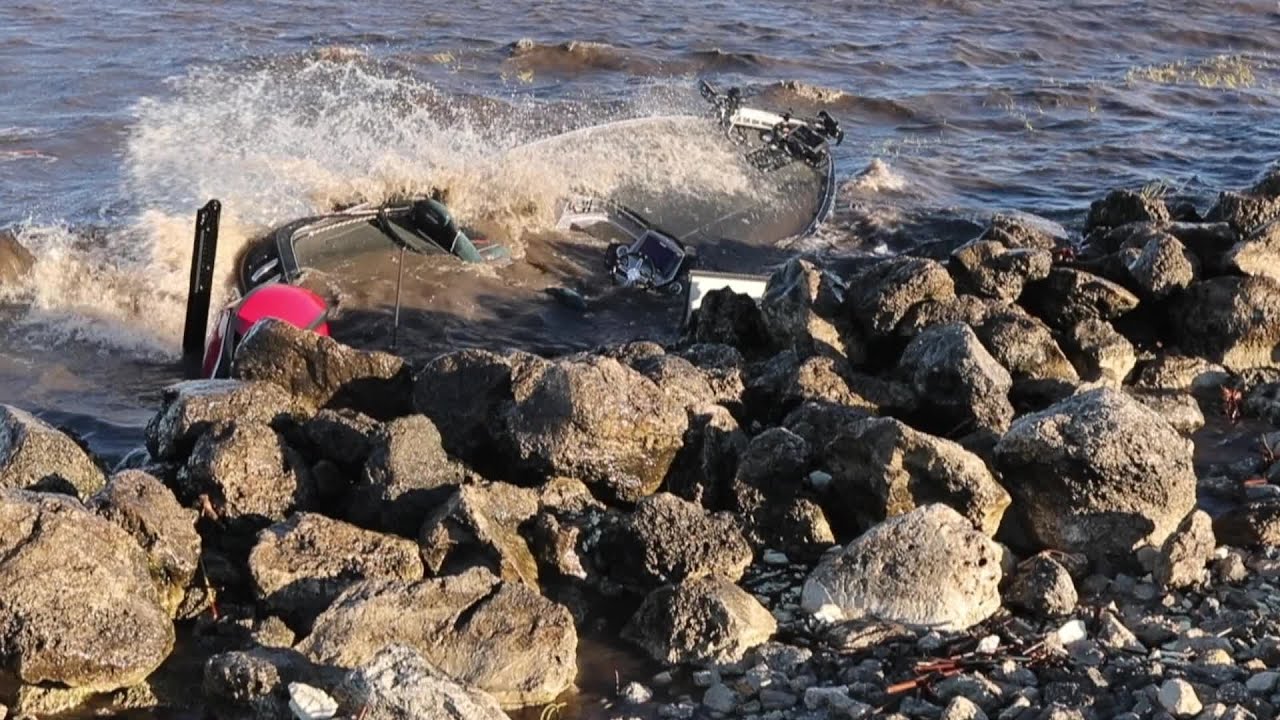

As boating accidents — including loss of lives — are becoming increasingly prevalent, it’s also becoming increasingly harder to determine the exact cause(s) behind them. The purpose of this piece is not to claim to understand all the factors and circumstances leading to the high-profile boating accidents being referenced or place blame on any parties involved, but rather attempt to shed light on this serious issue in an effort to prevent or minimize future incidents from occurring.
Videos by Outdoors
Although alcohol is certainly involved in a fair number of boating accidents, it is far less to blame than most might think. On the other hand, boating safety incidents involving operator error, not mechanical failure, is a far broader contributor. Time and again, these incidents come about as boaters take unnecessary risks, putting their watercraft in situations they weren’t designed for. Case in point: bass boats aren’t built for the ocean any more than offshore rigs are designed to run in two feet of water.
Over-reliance on navigational electronics is also partially to blame. While recreational boaters and anglers may find it very helpful, and convenient, to run a previously created GPS trail, navigating it in fog or other low-light conditions is anything but a smart decision, as there’s no way to know with certainty if floating debris, or another boater, lay ahead. While virtually all electronics are equipped with a “Do not rely solely on this device for navigation” audible/visual safety warning, we unfortunately live in a world where common sense and patience are lost virtues. (It’s very likely that most folks reading this have never read these warning messages in their entirety. Most seem to have been conditioned by “Terms of Service” pop-ups to the point we all instantly search for the “Agree,” “Accept,” “Enter” or “Exit” buttons. Simply put, what ever we have to do to move on with our lives, we do.)
I can’t help but wonder how many boating fatalities could have been avoided if boaters just took the time to read that simple message and simply let the levity of it sink in. While it’s great to have a flare gun and satellite phone aboard a vessel, what’s really needed is just a little more common sense. Like knowing a 20-foot bass boat shouldn’t be driven across a half-million-acre lake in 30-mph winds, or run around a blind turn at 45 mph.
While tournament bass anglers account for only a small segment of the boating community, this demographic subset has nevertheless seen a huge spike in the number of boating accidents encountered over the last several years. Participants in this hyper-competitive environment routinely do all they can to gain an advantage, sacrificing nothing that might cost them an edge. The sobering fact that bass fishermen are increasingly not returning home from a day on the water shouldn’t be taking place with such regularity in this day and age. Particularly, when such high safety standards have been built into the boats that course our nation’s waterways.
So, what’s the answer? Should horsepower regulations be revisited? Possibly, although—circling back to the tournament bass fishing world — 250-horsepower engines have been allowed in most tournaments for decades now, more and more accidents continued to be documented while the boats themselves weren’t going any faster.
Or, has a slight uptick in the economy resulted in less-experienced boaters buying boats and taking to the water? Perhaps, but that alone isn’t to blame for all boating accidents, or even a large portion of them, as operators still have to take and pass a boating safety course to be granted a vessel license.
So, what is it? The problem may well be that boating safety is far too broad of a topic to solve completely, much less boil down to a simple bullet-ed list of issues. For starters, though, boaters can draw attention to the need for safety and hope that shining a light on the issue will help common sense become a little more “common.” They simply have to be more careful, as well as more cognizant that fellow boaters might not be taking the same precautions. And, they need to routinely practice more defensive driving that limits the number of compromising position they put themselves into, and their reliance on other boaters’ decisions to keep out of harm’s way on the water.
Below are 9 recent accounts* of the all-too-prevalent boating safety crisis facing us all:
March 2018 Angler injured in boat crash during tournament on Lake Seminole

BAINBRIDGE, Ga. (WCTV) – A Friday morning boat crash sent a professional angler to the hospital. It happened around 7:40 a.m. on the Georgia side of Lake Seminole. Authorities say the two boats involved in the crash were a part of the Costa FLW Series Southeastern Division bass tournament. The FLW website says co-angler Jim Topmiller of Orlando was taken to the hospital with non-life threatening injuries. The other three anglers reportedly declined medical attention.
March 2018 One dead, one seriously injured in boating incident
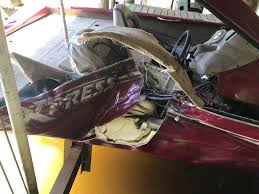
STOCKTON, AL (WALA) – One person was killed and another was seriously injured when two fishing boats collided during a fishing tournament near Live Oak Landing in Baldwin County Saturday, according to the Alabama Law Enforcement Agency.
This happened at about 10:50 a.m. near Stockton, where a Media Bass fishing tournament was happening on the Tensaw River. One of the two fishing boats was involved in the tournament, an ALEA official on the scene said.
February 2018 Anglers injured in FLW Tour event on Lake Okeechobee

February 1, 2018 by FLW Communications
MINNEAPOLIS – Pro competitors Andy Young of Mound, Minnesota, and William Campbell of Middlesboro, Kentucky, were involved in a boat collision on opening day of the FLW Tour at Lake Okeechobee last week. The collision happened while both anglers were running the lake and met at the end of a boat lane near Moonshine Bay. Co-angler James Bianchi of Rush, New York, was in Young’s boat, while Lee Frye of Brooksville, Florida, was the co-angler in Campbell’s boat.
Young and Bianchi were ejected, but were able to return to their boat after Young’s mandatory ignition shutoff device disengaged the engine. While damaged, both boats returned under their own power to the launch site at the Clewiston Boat Basin.
January 2018 Body of missing angler found near Clewiston

CLEWISTON – The body of the fisherman lost on Lake Okeechobee during the first day of the Fishing League Worldwide (FLW) Costa tournament has been found. The body of Nik Kayler was recovered Wednesday morning from the lake near Clewiston by a commercial vessel, according to the FLW press release. Nik Kayler, 38, of Apopka, was an Army veteran, husband and father.
January 2018 Large boat runs into fishing skiff
2017 Collegiate anglers thrown from boat
2013 Two boats meet in trail
2013 Lightening strikes near bass boat
https://youtu.be/Ha5PfxuWWwg
2012 Driver and passengers injured in boat race incident on Lake of the Ozarks
[td_smart_list_end]
*Note: These images and stories may be disturbing. Viewer discretion advised.


